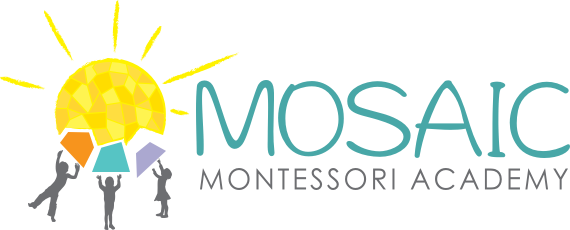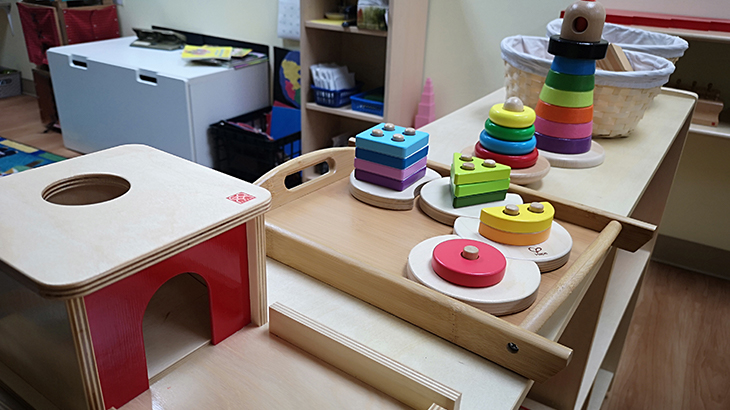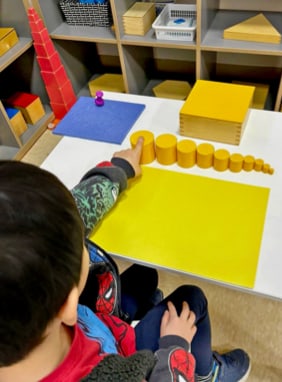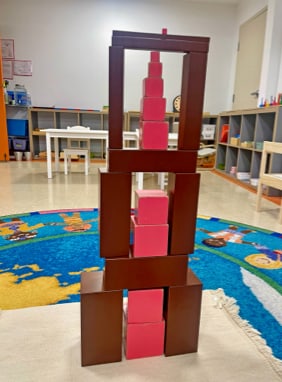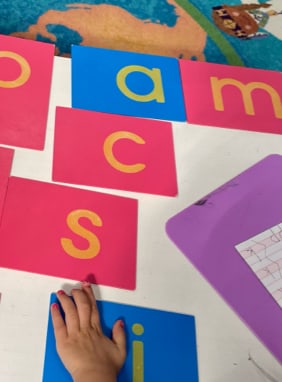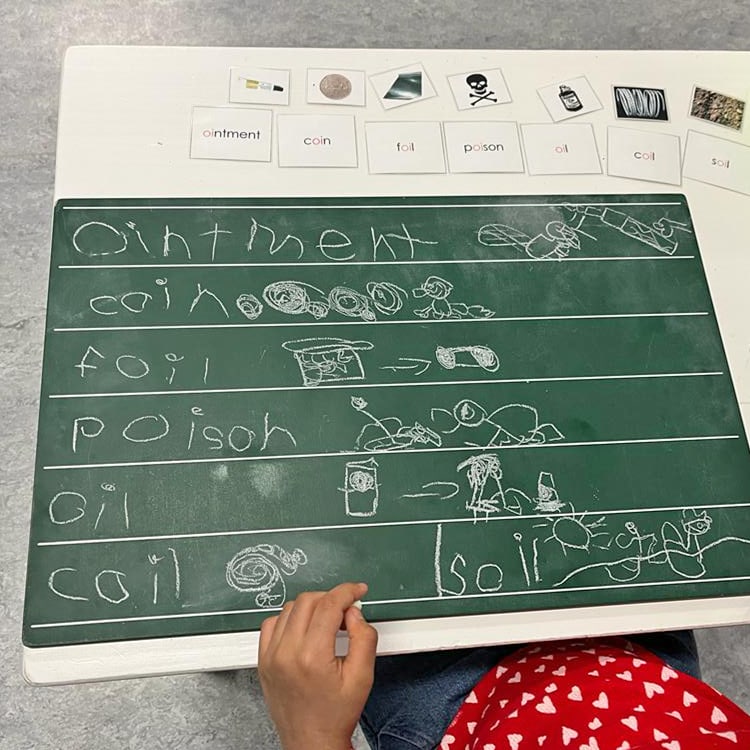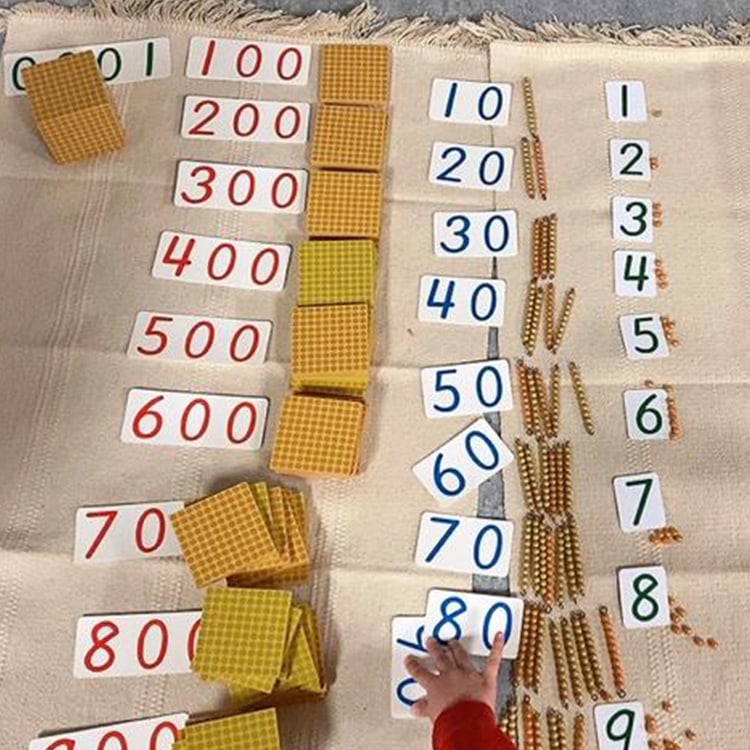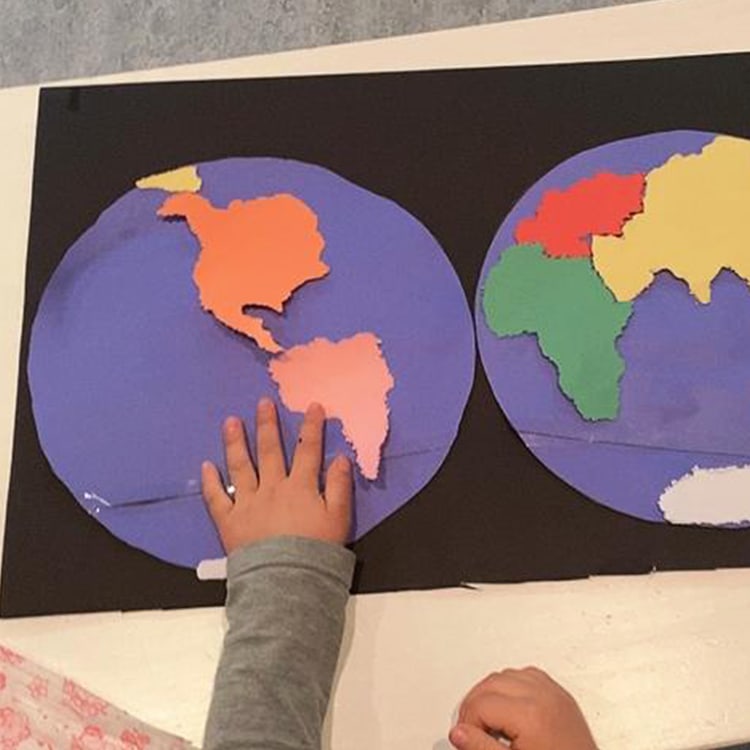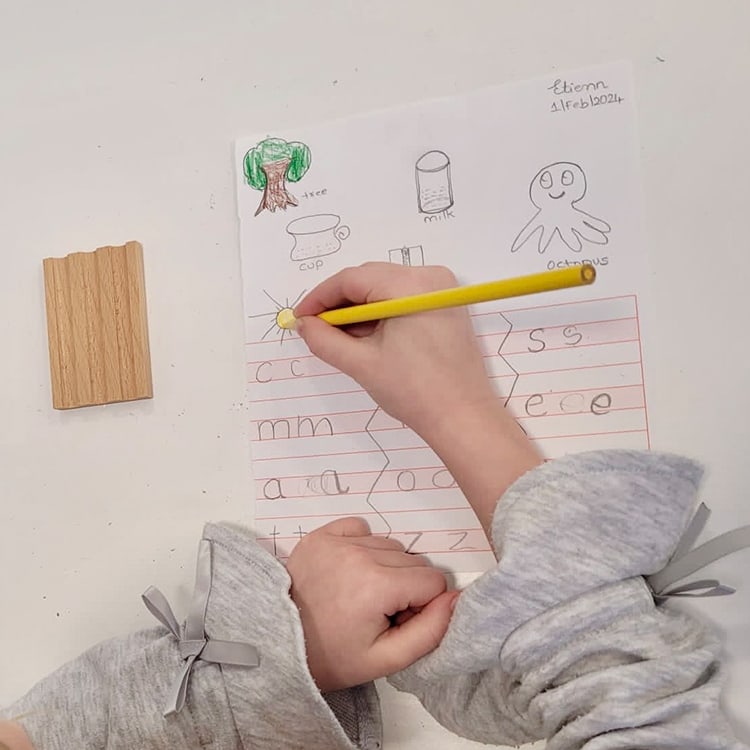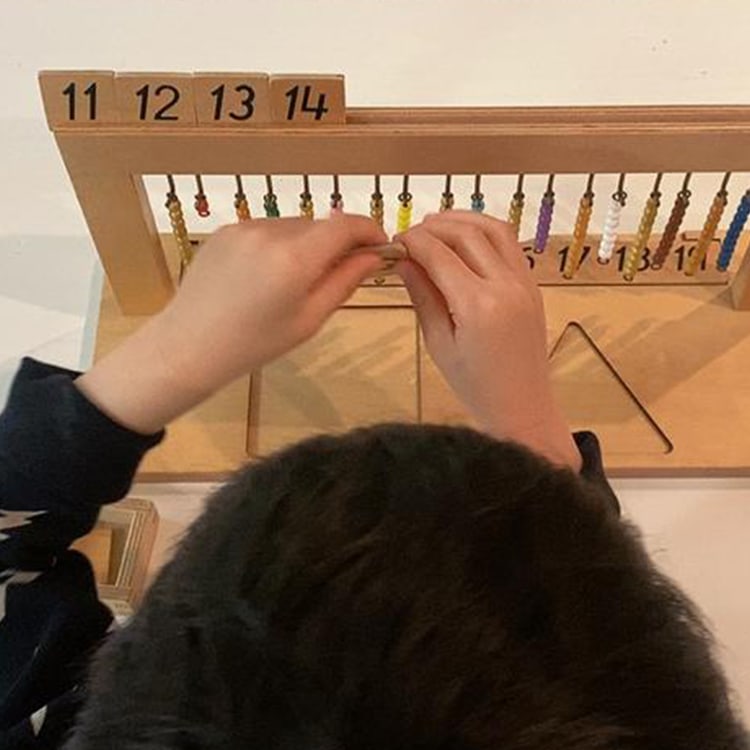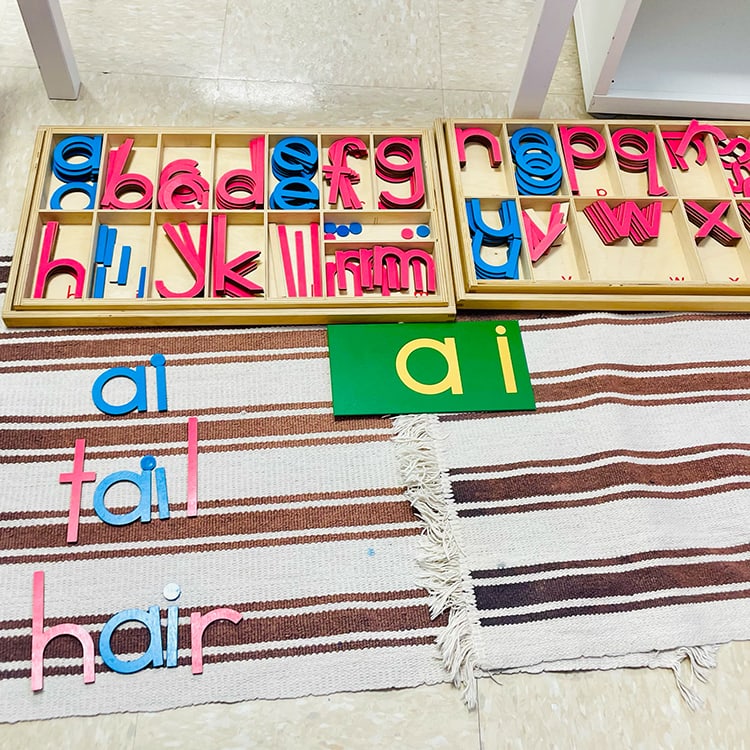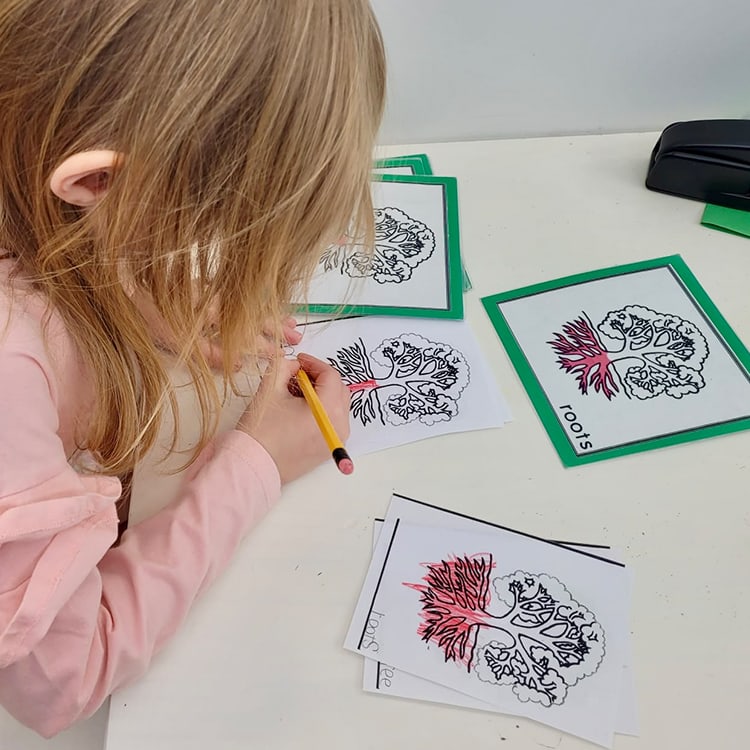Over the last few years, Montessori has become an extremely popular choice in Calgary for parents to get their child started on the path to learning. Based on the demand in Calgary, a large volume of Montessori schools have recently opened their doors. As a parent it is important to understand that “Montessori” is not franchised, trademarked or licensed in any way. For this reason, parents may see a number of variations in the way Montessori is being implemented when exploring potential schools for their child. Parents usually ask: “How do I know if this is an authentic Montessori school?” “What should I be looking for in a Montessori school?” and “What red flags should I be aware of?”
Montessori schools are based on the principle concept that a child learns best when engaged in an environment that supports each individual child’s unique development. What sets Montessori apart from other schools is the notion that a “social environment” reaches beyond the classroom and includes the family. As such, we consider it vitally important that the family is included in all stages of learning, including the selection of a Montessori school for your child.
First and foremost, identify if the school you are considering is an accredited Montessori school. Accredited schools (or schools applying for accreditation) uphold the pedagogy of Maria Montessori and the Montessori method and have been independently reviewed by the regional credit granting body. For example, in Canada, Montessori schools are accredited through the Canadian Council of Montessori Administrators (CCMA), and must uphold excellence year to year to maintain their position on the accredited list.
Secondly, consider the actual school itself.
- Where is it located?
- What is the history of the school?
- What are the tuition fees?
- Is the school privately owned and operated or run by a board?
- What are the class sizes?
The authentic quality Montessori schools often receive more applications than there are spaces available, so it is best to do your research and apply or waitlist early.
During the first appointment, any good Montessori school will allow you to observe a classroom, as each school has its own unique culture, focus and atmosphere. Things to look out for during the initial observation:
- How many students are in the classroom?
- Is there ample uninterrupted work time in the environment? (2.5 – 3 hours is the norm)
- Are the learning materials diverse and in good condition?
- Is the classroom kept clean and organized?
- What activities are available?
- Are the students interacting with one another and the staff?
- Does the environment foster independence and freedom?
- Is there a sense of respect for the children, teachers and the materials in the classroom?
- Do the children seem happy in that environment?
- Most importantly: do the children in each classroom feel engaged and active in their learning?
Each family is unique and will have their own distinct observation experience. However, all Montessori classrooms should be organized neatly and promote an atmosphere of freedom, independence, and student responsibility for the workspace. Class sizes are ideally kept lower than standard public school classrooms to encourage one-on-one activities between teachers and students, and self-education of the student through engagement with Montessori materials available around the classroom.
Thirdly, consider the staff. Montessori educators demonstrate a high level of energy, happiness and engagement while working with the children. Their level of commitment is first demonstrated through the training and accreditation necessary before teaching in Montessori classrooms and secondly, through their commitment to the students. Some questions to keep in mind when observing the teaching and administrative staff:
- Are students being treated with respect, and engaged in meaningful ways by the staff?
- Is there openness and communication between all levels of administration, from the student through to the administration?
- Are staff members approachable to students, and are they responsive to individual needs?
- What sort of training do the teachers have?
- How long have they been teaching Montessori?
As the family is part of the learning experience, it is important that the administrative elements of any Montessori school be reviewed.
- Is the administration open and responsive to questions or concerns?
- Is the teaching staff engaged in continuous professional development?
- Is there ample supervision of the students?
- Is the school registered as a legally and fiscally responsible entity with appropriate municipal and/or provincial governments?
- Are there opportunities to understand the Montessori method or learn more about the curriculum, such as parent education nights?
Lastly, what red flags should you be aware of?
- Does the classroom have a full range of Montessori materials?
- Often, schools will have a few of the commonly known materials but will present the school as Montessori program. Ensure that a full range of Montessori classroom materials is present and available for use in the classroom
- Does the school offer options of 2 or 3 days per week?
- The Montessori philosophy promotes consistency and order, believing that children need a sense of predictability and security. In addition, consecutive days facilitate the teacher’s need to follow through or follow up on an individual child’s progress in a particular area or lesson, allowing your child to progress and benefit from the learning opportunities that are presented. Be wary of schools that offer 2 or 3 days per week as an option. In order to get the most out of a Montessori education, your child needs to be attending 5 days per week. There is a significant difference in the social and academic progress of a child that attends 5 days per week compared to one that doesn’t.
- Is the “Montessori” school also a “daycare”?
- Daycare and Montessori are two separate philosophies and do not follow the same pedagogy. Daycare settings often involve a play base format including plastic toys, fantasy based activities as well as overstimulation within the environment through colors, wall murals and displayed artwork. In a Montessori environment, the materials are made with natural wood and displayed individually and methodically. The walls are of a single natural color with no murals, or distractions so the children are drawn to the material rather than the displays on the wall. If it is a full day Montessori school, ensure that Montessori activities spread throughout the course of the day rather than ½ day of Montessori and the other half as a daycare.
- Are there conflicting philosophies being taught?
- There are some schools that have chosen to include Montessori “components” to their curriculum along with other ECE methodologies such as Reggio, Waldorf, ECE, IPC, Playschool and everything else under the sun. This is extremely confusing for the child and at 2-6 year age group when routine, order and consistency should be the priority.
- Pricing
- Sibling discounts are usually applied at most schools but be wary of schools that offer unrealistic tuition discounts to sign up eg: complete waiving of registration fees, 10% + discount on tuition.
- Are you paying for Montessori, bells and whistles or a mixture of programs?
- Is the child’s entrance age appropriate for the program?
- Montessori schools or preschool begins at the age or 2 ½ years. Are there children too young to be in school? Make sure the school is complying with childcare licensing guidelines to ensure adequate supervision and safety is being met.
If any of the red flags above are not addressed to your satisfaction, it is usually safe to say that there is probably a better option out there.
All Montessori schools strive to foster a partnership with the entire family, not just the child. They will welcome questions such as those listed above, and will often have material with information and answers based on each individual school. Montessori schools adhere to open, non-discriminatory admissions policies. As well, in accordance with Montessori standards, all educational policies and procedures are available in written format, either in hard copy or via each school’s independent website.
As the whole family is included in the Montessori method, we hope that this quick guide to what to look for in a Montessori school has helped answer some questions, and hopefully created others that are unique and individual to your family. That is, after all, one of the key concepts of the Montessori method.
For more information about the accuracy of the information, please do not hesitate to visit the following websites:
